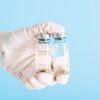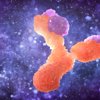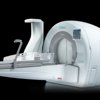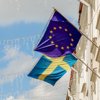Fritextsökning
Artiklar per år
Innehållstyper
-

The vaccine has saved 94 million lives – but measles is spreading again
A disease we once believed belonged to the past is now resurging in both Europe and the United States. In the shadow of growing skepticism and declining vaccination coverage, measles – which has claimed millions of lives throughout history – is making a comeback.
-

Nytt samarbete: Chat GPT flyttar in i Lundbecks laboratorier
Den danska läkemedelskoncernen Lundbeck tar hjälp av Open AI för att påskynda forskning och effektivisera arbetet inom hela verksamheten.
-

New findings on the diseases that crushed Napoleon’s army
As if cold, starvation, and typhus weren’t enough. New research reveals that Napoleon’s defeated army also suffered from paratyphoid fever and relapsing fever during the retreat from Russia.
-

Vaccine project targeting congenital infection scrapped in late-stage trial – “Clearly disappointed”
Hope for the first vaccine against the world’s most common congenital infection has taken a serious hit
-

Swedish life science is growing – but capital is not keeping up
The number of employees and companies in Swedish life science is increasing and the sector is more equal than many other sectors. But investments in unlisted companies are weak.
-

A cluster contribution to European life science innovation and competitiveness?
-

Swedish team tests Alzheimer antibody for brain imaging
Recent breakthroughs in Alzheimer’s treatment have increased the need for precise diagnostics in the field. Researchers in Uppsala are working to develop improved methods for both identifying suitable patients and ensuring they receive the right therapy.
-

How the Nobel discovery is used in drug development
Regulatory T cells keep the immune system in check, a discovery now awarded the 2025 Nobel Prize in Physiology or Medicine. Qiang Pan Hammarström explains how this finding is being applied in today’s drug development, and what challenges remain.
-

Sarah Lidé: ”Artificial intelligence must not replace authentic interactions”
Artificial intelligence must never become a replacement for authentic, even if messy, interactions with our fellow humankind, Sarah Lifé, Deputy CEO at Medicon Village Innovation, writes in a column.
-

Heart Monitoring in Breast Cancer – Essential or Excessive?
Trastuzumab and related drugs have transformed breast cancer treatment and dramatically improved survival rates. But the close cardiac monitoring required during treatment can be a heavy burden for both patients and healthcare systems. Dr. Andri Papakonstantinou is working to refine how doctors identify which patients truly need intensive follow-up.
-

Astra Zeneca pauses multi-million investment in the UK
Astra Zeneca has paused a planned investment worth $270 million. It is the latest pharmaceutical company to pull back on its commitments in the UK.
-

Novo Nordisk tells staff to return to office
At the turn of the year, Novo Nordisk employees will no longer be able to work remotely. According to the company’s new CEO, the move is intended to accelerate decision-making and improve commercial execution as competition in the obesity drug market intensifies.
-

Billion-Dollar Deal Sends BioArctic Soaring
Swedish Alzheimer-focused company BioArctic has entered into a licensing collaboration with Novartis regarding a technology aimed at enhancing efficient drug delivery to the brain. The BioArctic stock surged significantly following the announcement.
-

Hon ska leda statens antibiotikafabrik
Erika Jarméus har utsetts till enhetschef för den antibiotikafabrik i Strängnäs som nyligen förvärvades av det statliga läkemedelsföretaget APL.
-

New ATMP center inaugurated: “In the future, we will see cell and gene therapies in all clinics”
Karolinska Institutet and Karolinska University Hospital’s new ATMP center was inaugurated in Flemingsberg, south of Stockholm. “The ATMP Center is not just a physical place, it is a promise,” said KI’s Vice-Chancellor Annika Östman Wernerson.
-

Anocca raises SEK 440 million ahead of clinical cancer trial
Swedish cell therapy biotech Anocca has successfully raised SEK 440 million in a new funding round to support upcoming clinical trials in pancreatic cancer.
-

The top five most expensive drugs in 2025
New advanced therapeutic medicines are reaching the market, but their price tags remain exceptionally high. This year’s ranking of the most expensive drugs in the US reveals a common denominator: all are gene therapies administered as one-time treatments.
-

Allogene discontinues investigational antibody following patient death
U.S. biotechnology company Allogene Therapeutics is fully discontinuing the use of its experimental antibody ALLO-647 following the death of a patient in its pivotal CAR-T trial.
-

”Läkemedelstillverkare måste tänka om kring cybersäkerhet”
Läkemedelsföretagen har blivit en allt vanligare måltavla för cyberattacker, inte minst från statsstödda grupper. Därför behöver branschen fokusera om för att minska sin sårbarhet, skriver Hexagons Jeppe Bank i en debattartikel.
-

Uppsalaanläggning tas över av nederländskt bolag
Uppsalabaserade OT Chemistry med 20-talet anställda förvärvas av det nederländska CDMO-bolaget Ofichem.
-

Novo Nordisk appoints Mike Doustdar as new CEO
The Danish pharmaceutical giant Novo Nordisk has appointed Mike Doustdar as its new CEO. At the same time, the company announced it was lowering its forecasts – which caused the stock to drop sharply on Wednesday.
-

Nytt godkännande för Elektas Gamma Knife i USA
Strålterapibolaget Elekta har fått klartecken av den amerikanska läkemedelsmyndigheten FDA för att använda sitt Gamma Knife-system vid ytterligare en typ av särskilt svårbehandlad epilepsi.
-

FDA approves Gilead’s HIV injection: “Historic day”
Gilead Sciences’ preventive HIV drug, lenacapavir, was approved on Wednesday by the U.S. Food and Drug Administration (FDA), sparking new hope for finally breaking the transmission chain of a virus that affects 1.3 million people annually.
-

Agreement in the EU on eight years of data exclusivity for new medicines
New pharmaceuticals will be covered by eight years of data exclusivity, according to the proposed new pharmaceutical legislation that EU countries have now agreed upon after prolonged negotiations.